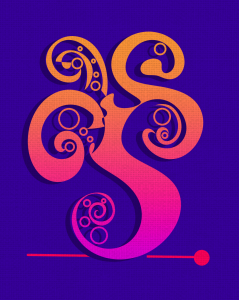Sunday Night Thoughts on the BBC’s ‘Impartiality’
12.03.2022
Throughout my academic career, my work (including drafts first sent elsewhere of published work in top journals and publishing houses) has been criticised for being ‘subjective’, ‘biased’, ‘partial’, etc. Why? Because I write as a British Asian man from a working class background, for my mother (a poor, foreign immigrant from an oppressed community). Because I criticise the racial bias in the law. Because I don’t pretend, like the scholars from the majority background, that my work is ‘objective’. I don’t believe in ‘objectivity’ or ‘abstraction’ when it comes to social comment and analysis. You shouldn’t either. Because your background, culture, childhood, life experience – how people treat you in this society – affects everything you think.
So, it was with great sympathy that I saw how Gary Lineker was treated because he pointed out the xenophobia in the government and the law’s treatment of refugees. Like me, they (the %^#*s, tried to stamp out his valid criticisms of the law because this is not the story that racist (neo-imperialist) power likes to tell itself.
However, let us not blindly support Lineker just because those in power tried to silence him. Is it right that the BBC should be ‘impartial’? Let us consider the following points.
- Isn’t it funny that when the BBC pundits criticised Qatar for the World Cup during its sports broadcasts and abandoned its ‘impartiality’ to criticise a Muslim country in this climate of xenophobia and Islamophobia, nobody was kicked off the TV? Hmm. Seems like there is no rational explanation for why that happened except that you don’t have to be ‘impartial’ when it doesn’t involve Western politicians in Western countries. After all, they are just brown people with no ‘objective’ knowledge.
- Actually, throughout my whole adult life, I have watched the BBC trash Indian people in practically every news story they run about India. I’m not saying Indians don’t have problems. But you read a story about rape and apparently Indians have a ‘rape culture’, when rape incidents are only marginally higher than in the rest of the world and the statistics are suspect anyway for various reasons, such as families trying to stop teenage relationships outside of arranged marriages and pretending that rape is happening when it isn’t. Description of Indian politics talks about right wing authoritarianism which you would never know existed in Tory culture in the UK. You read a review of a movie and it says it represents the widespread misogyny of Indian males. Really? In my house, we worship the mother goddess on my mum’s side and the women are involved in all the decision making at the highest and lowest level. Hindi films can be a one-actress show unlike films in the West and still draw audiences. Apparently, though, this is all ‘impartial’ reporting and is in no way racist.
- Is the BBC saying that when you see the most vulnerable people in need of shelter and safety (ironically, from political oppression) literally being treated like garbage instead of humans, you should stand by and be silent? Is this the meaning of impartiality? Perhaps we should film murders happening and do nothing to prevent them as well? Is that impartiality? To stand by while the government and the law in this country violate the basic tenets of humanity? Even when this is political response to a political problem of asylum from oppressive regimes (as though everything doesn’t involve politics)?
- When I was at school, we were taught that all media has bias and we were taught how to analyse news stories so that we could detect this bias. This was when I was twelve years old. Apparently, the argument we are supposed to swallow from the BBC goes against the compulsory government mandated education that I received as a ****&^%$ child…
- To reiterate a point above, is it possible to achieve impartiality about news and current affairs? Isn’t everything somehow political? News ‘facts’ aren’t hard facts like science and maths, and even scientists and mathematicians have the humility to acknowledge that numbers and scientific perceptions of the universe around us depend upon our human perspective and limitations. Apparently, though, the BBC is like the Western God that has objective, omniscient, unlimited knowledge.
To conclude, isn’t it funny that every time you criticise the law in this country for being racist and the government for being racists, even when it is patently obvious, suddenly you are ‘partial’, ‘subjective’, ‘wrong’? It’s almost like they want to silence us while their racism remains completely ‘objective’ and ‘impartial’. Almost as though they are always right no matter what they want to do and no one is allowed to offer any alternatives and no one will ever listen to any criticisms. Because They (the media, the government and its law, the powerful) are literally the Western God with an (arrogant) total knowledge… But of course, this comes from a partial man with a limited knowledge and the humility to acknowledge that his is just one perception. So it must be wrong, right? Because it is not ‘impartial’…
